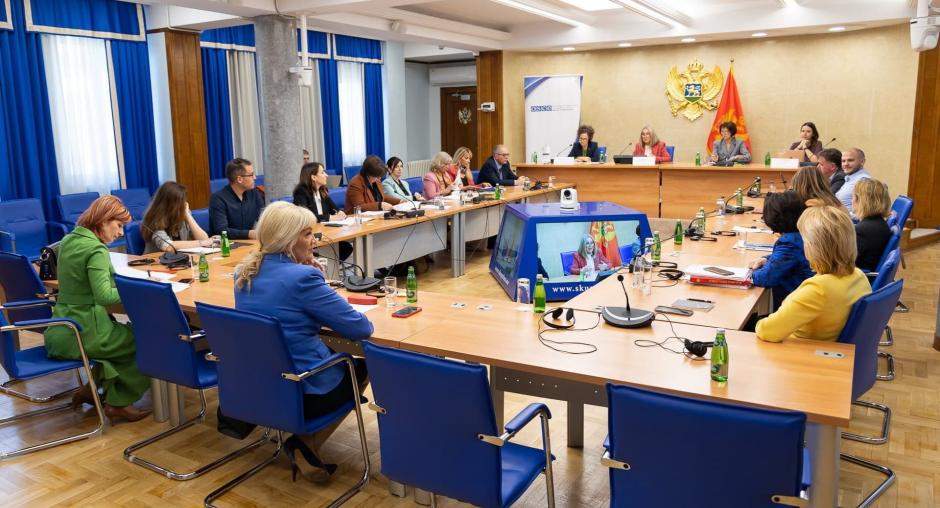OSCE Mission to Montenegro provides Parliament with instruments to review legislation from gender perspective

At the 35th session of Parliamentary Gender Equality Committee, held on 28 October, the OSCE Mission to Montenegro presented to MPs and representatives of the public administration instruments developed to support the institution in ensuring the laws are gender-mainstreamed and provide for equal treatment of all citizens.
These two tools provide ex-ante and ex-post gender assessment of legislation, the first one ensures that a gender aspect is included in drafting the law, while the second one examines how the law, once implemented, impacts women and men. The way to use these tools were demonstrated by examining four pieces of legislation.
Head of the OSCE Mission, Dominique Waag, opened the session saying that Montenegro, as an OSCE participating state, has committed to making equality between men and women an integral part of public policy. “Working with the Gender Equality Committee, the Mission supported the development of two practical instruments to ensure that laws have a positive effect on all citizens and to foster equality. In using these tools, parliamentarians can make sure that the laws they pass reflect gender equality, ensuing an inclusive and equal society. It is a significant step in fostering the Parliament’s position as a regional leader in gender equality,” said Ambassador Waag.
Božena Jelušić, Chair of Gender Equality Committee said that the laws selected to be analysed are: the Law on Agriculture and Rural Development, the Law on Tourism and Hospitality, the Law on Inheritance and the Law on Salaries of Employees in the Public Sector. “The first two laws were chosen because they mostly lead to women’s access to power, through entrepreneurial policies. The third law addresses a change of practices in the inheritance provisions which had systematically discriminated against women and the fourth law concerns the inequality in earnings between women and men,” said Chair Jelušić.
These instruments presented by Mission-engaged expert are practical tools that will enable parliamentary committees to have a better insight on how the laws can affect women and men, and marginalized groups in society. They also facilitate easier monitoring of types of impact during a defined time frame, through the qualitative and quantitative indicators that are built within them.
Around 30 participants, among which were MPs, representatives of the Judicial Council, the ministries of economic development and tourism, of agriculture, forestry and water management, and of justice, Notary Chamber and Statistical Office MONSTAT, attended the session that was broadcasted live on Parliamentary Channel.
